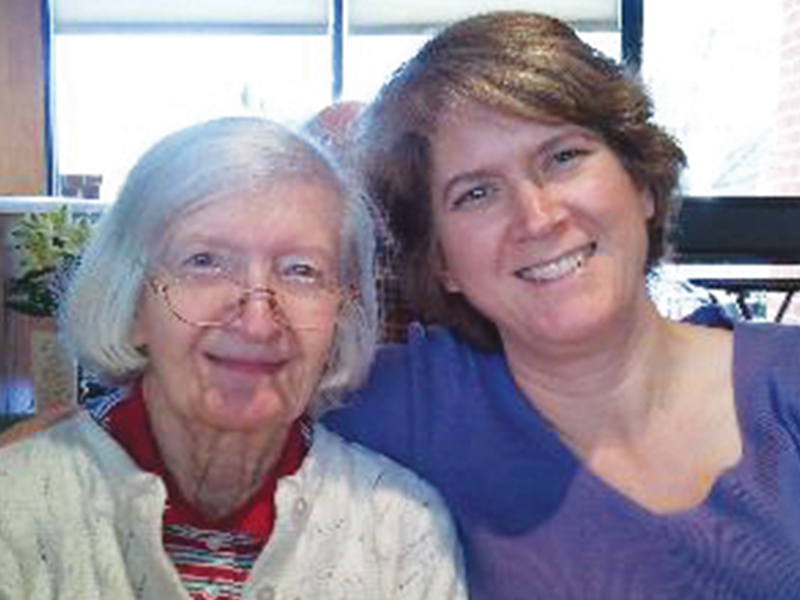Barbara Monteith got over the stigma of Alzheimer’s a long time ago.
“I don’t have time for that,” she says with a smile while nursing a coffee, explaining it wasn’t hard for her to admit her mother was slowly losing her mind.
As the primary caregiver for her 88-year-old mother Lavina Gresham—and the mother of two teenagers—Monteith says she is part of the “sandwich generation.”
“I constantly juggle, ‘Should I quit my job and spend every day with mom? Should I convert my house so that she can come and live with me?’ There’s always that struggle between ‘Am I spending enough time with my mom, am I spending enough time with my kids?’” she says.
The Williamsburg, Virginia, resident began hearing stories about her mother’s odd behaviors—like buying two or three jars of tomato sauce every time she went to the store or forgetting how to turn on the car—from her father about two years before the official diagnosis.
“Things my dad would tell me would set up red flags,” she says.
When her mother was diagnosed with the most common form of dementia eight years ago, Monteith began doing research. She and her father didn’t know much about Aricept, the drug Gresham was prescribed by her doctor, so Monteith reached out to her local chapter of the Alzheimer’s Association, where she was offered literature, advice and support.
When her father died suddenly in 2010, Monteith became the sole caregiver for her mother, who still lived in Richmond, Virginia, at the time.
“I suddenly was in charge,” she says, explaining her three siblings—although sympathetic—did not take on as many of the caregiving responsibilities.
“We see that over and over again in families that there’s usually one sibling, one child that steps up to the plate,” she says.
When the responsibilities became overwhelming, Monteith quit her job at a local nonprofit to care for her mother full-time.
“Unfortunately that happens a lot,” she says, explaining many caregivers have to cut back on hours or quit working completely.
After finding support with the Williamsburg chapter of the Alzheimer’s Association, she took on a part-time job with the local chapter, which eventually led to a full-time job as a development specialist for the organization. Monteith says the job has worked out well, as her superiors understood when emergencies with her mother forced her to miss work.
In December 2012, after her mother sprained her ankle and received a third-degree burn from spilling hot tea on herself, Monteith realized it was no longer safe for her mother to live at home by herself with limited care, so she moved her to an assisted living community in Williamsburg.
“We realized she had come to the point where she needed 24/7 care,” Monteith says.
Monteith now visits her mother once or twice a week in her assisted living home, talking to her, playing music—hits from “her era,” like Frank Sinatra and Perry Como—and taking her for walks outside.
Her mother doesn’t recognize her as a daughter, but knows her as a friendly face, a companion.
Despite the stress and the emotional toll that comes with being a caregiver, Monteith says sharing her story has brought her insight and helped other Alzheimer’s patients and caregivers.
“People with Alzheimer’s lose the ability to speak for themselves,” she says, explaining someone has to become an advocate for them.
Monteith recognizes the most important part of being a caregiver—making sure to care for herself.
She credits her husband as a great support system for her, and said speaking with other caregivers has helped her realize she is not alone.
“Educating myself was huge,” she says. “Do as much research as you can. Use support groups, talk to other caregivers. You have to take care of yourself.”


